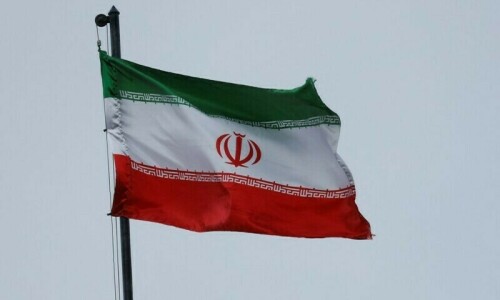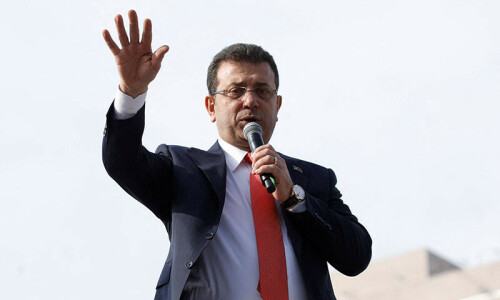
Not long ago, in a recent mention of a collection of Sindhi tales — Pirani and Other Short Stories by Jamal Abro — I was intrigued to see that the renowned poet Shaikh Ayaz had described the writer as “writing prose that danced.”
With my love of short stories, I immediately traced and read the title story, then ordered the volume. But the title tale had little impact on me, and made me wonder: are stories dependent on the sound of the language, cultural context, or some other ineffable quality that escapes the translator? Would an Urdu, Punjabi or Pashto translation have captured the melody of the story better? Again and again, I face the dilemma of a Pakistani caught between tongues.
This week, friends from Sindh sent me recordings of Shah Abdul Latif Bhitai’s surs and, even before looking for the translations, I’ve been moved to the core by the beauty of their melodies. But I, who can read Punjabi poetry and prose — albeit with some difficulty — still don’t know Sindhi, the language in which my father, the prototypical Pakistani multilingual, spoke to his father.
My father grew up hearing Seraiki, and then Urdu and English, around him as he moved with his family, and then as a student, between Bahawalpur, Aligarh and Delhi. But he was educated in English. Later, my parents made a decision to focus on giving us an Anglophone education, which they had both had, along with a level of proficiency in Urdu which was my mother’s language.
They would not, they said to the chagrin of my father’s Shikarpur relatives, complicate our lives by teaching us Sindhi. It was only when I was on the cusp of my 20s, when he discovered my growing love of the poetry of Khwaja Ghulam Farid, that my father nurtured my interest in Seraiki. Later still, I would persuade him to help me understand the surs and wais of Bhitai. (Much later, Christopher Shackle’s splendid bilingual volumes were to serve as my bridge across languages.)
Without translation, we are unable to read each other’s languages.
Coincidentally, both the friends who sent me the recordings of Sindhi songs had their primary schooling in Sindhi, and learned both Urdu and English at an early age. But both speak Seraiki at home and both feel that Urdu comes to them more easily than English.
I discussed the question at length with one of them, Ali Akbar, who regularly publishes short fiction in Urdu journals. He was drawn to Urdu literature as a youth and feels the language is most accessible to him in his environment. He hasn’t considered writing in Sindhi or Seraiki. But he is doing an MPhil is English which, he thinks, is the language of power even today in Pakistan, and has some aspirations to writing in that language for international visibility.
Sheeraz Dasti, novelist and academic, speaks Seraiki as a mother tongue, but writes fiction in Urdu, which was his main language of instruction and still serves him as a creative vehicle. He doesn’t agree that Urdu is the language that brings writers most acclaim in Pakistan, saying that, in fact, writings in Seraiki and other regional languages are more likely to bring their authors national awards and recognition. The pity is that, without translation, we are unable to read each other’s languages, as in the case of my response to Abro’s stories.
Yet Sheeraz, like Akbar, chose English as the language of his professional life, though unlike Akbar he also writes fiction in English. We know, however, that Urdu is the language readers are drawn to across urban Pakistan, given the popularity, to name the most obvious, of poets Faiz Ahmed Faiz, Munir Niazi, Parveen Shakir and Jaun Elia, and short story writer Saadat Hasan Manto.
Reading Bano Qudsia’s Raja Gidh seems to be a rite of passage for adolescents, while the close link between television serials and certain popular novelists are a significant factor in the popularity of other authors. I also have Pakhtun friends who did all their primary schooling in Urdu and, in spite of their fluency in English, feel that Urdu comes more easily to them as a spoken and written language.
I am drawn back to a conversation I had with my friend, actor Shama Askari, about the hegemony of English as a ‘world language’, and the vehicle in which the literatures of the world are shared. Both of us have Urdu as a mother tongue, but were taught to think and express ourselves in English from our childhoods. Both rediscovered Urdu later in our lives — she as an actress and translator, and I by writing stories in Urdu. But what, Shama asked me, of those many Pakistanis for whom both languages — Urdu and English — are tyrannical?
She told me to read Zubeida Mustafa’s book The Tyranny of Language in Education: The Problem and its Solution, which enlarged the usual binary of mother tongue and language of education to include the language of the environment and the national language. Mustafa had encouraged Shama to reclaim Urdu and put it to practical use. Shama has found, in several projects, that the seemingly simple act of filling forms in English can subdue, and even suppress, several talents.
In most cases, among the several people with whom I discussed this question, Urdu emerged as the link language. But in several cases, I noticed the gap between the language of home and the language of environment, eg the Sindhi/ Seraiki paradigm, where Sindhi, not Urdu, is dominant. Then there is the Chitrali speaker educated in Urdu and then in English who, alone among my respondents, found English easier than Urdu because of its ungendered grammar.
Several of my friends commented that they are functionally unable to read and write in their home language or mother tongue because of the hegemony of another language. But as one speaker of Seraiki and another one of Pashto put it, “we can acquire some reading skill in our mother tongue with only minimal effort.”
For the writer, the dilemma of which language to choose is aptly summed up in a conundrum that Ali Akbar, who lives and works in Islamabad, recently sent me: one of his narrator’s parents speaks Seraiki, the other Balochi, and Pashto is spoken all around him. So far, the text — which he is writing in Urdu — is left unfinished.
The columnist is a London-based novelist and short story writer
Published in Dawn, Books & Authors, July 11th, 2021
















































